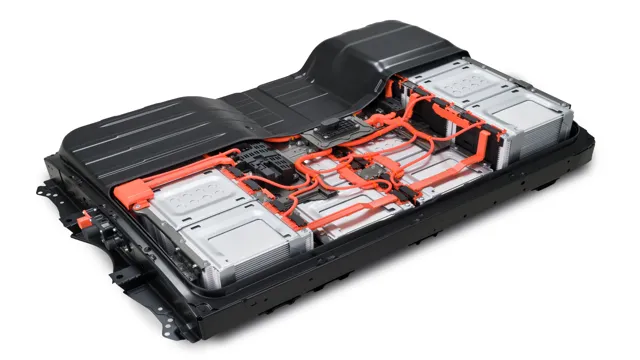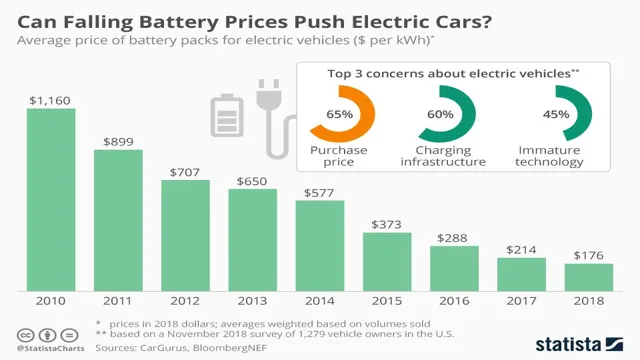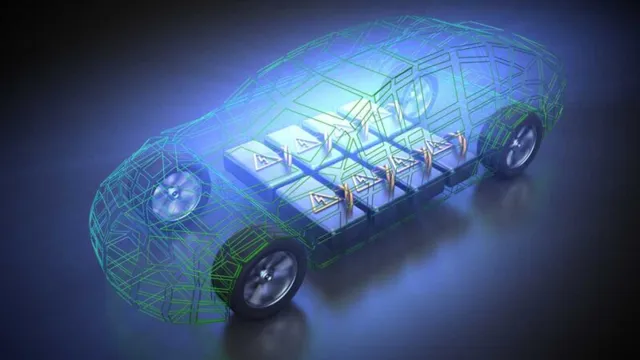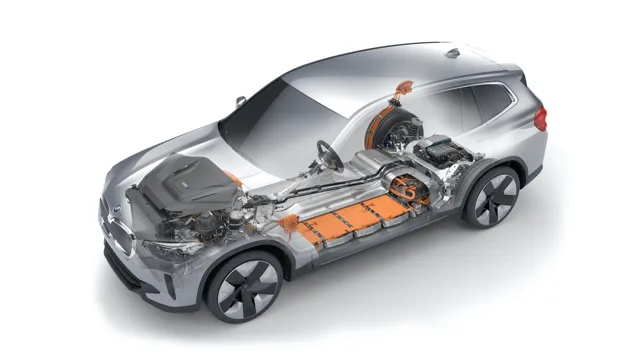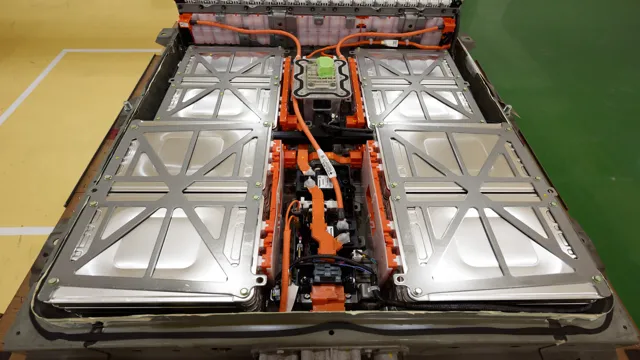Unpacking the Voltage: Exploring Electric Car Battery Pack Voltage for Optimal Performance
Electric cars have been on the rise as a sustainable way of transportation, and this has led to a growing interest in understanding the technicalities of the car battery pack voltage. For electric cars to function efficiently, the battery packs need to hold a certain amount of voltage. But how much voltage is that? The amount of voltage in electric car battery packs can vary depending on the car model, technology, and design.
While some vehicles may have a voltage of around 200 to 450 volts, others can have a higher voltage, exceeding 800 volts. This voltage plays a crucial role in determining the electric car’s performance, including its range, acceleration, and overall efficiency. A higher voltage means more power output, while a lower voltage leads to slower speeds and reduced driving range.
Understanding the electric car battery pack voltage can help car buyers decide which model suits their driving needs and preferences. It is also essential for existing electric car owners to maintain and service their batteries to ensure their cars’ longevity and optimal performance. So, next time you’re in the market for an electric car, consider the battery pack voltage and how it could affect your driving experience.
What is battery pack voltage?
Electric car battery packs are made up of individual cells, which are grouped together to create the overall voltage of the pack. The voltage of a battery pack is the measure of electrical potential difference between its positive and negative terminals. In electric cars, the battery pack voltage determines the amount of power that can be delivered to the motor and ultimately determines how far the car can travel on a single charge.
The voltage of a battery pack can vary depending on the size of the cells and the number of cells that are connected in series. Electric car battery packs typically have voltages ranging from 200V to 400V, with some high-performance models exceeding 800V. Higher voltage battery packs allow for quicker acceleration and higher top speeds, but also require more complex and expensive electrical systems.
Overall, the voltage of an electric car battery pack is a crucial factor in determining its performance and range capabilities.
Understanding electric car batteries
Battery pack voltage is a crucial design parameter for electric car batteries. It is the measure of the electrical potential difference between the positive and negative terminals of the battery pack. Generally, higher voltage batteries produce more power and can deliver more energy, making them ideal for high-performance electric vehicles.
However, high voltage battery packs are generally more expensive to design and manufacture. When selecting the right battery pack voltage for an electric car, manufacturers need to consider a range of factors, including the motor design, the size of the vehicle, and the intended use case. For example, a smaller electric car may require a lower voltage battery pack to conserve space and reduce weight, while a larger electric truck may require a high voltage battery pack to deliver the necessary power and range.
It’s also essential to note that battery pack voltage determines how much charge the battery can hold and how quickly it can charge. Higher voltage battery packs charge more quickly but require sophisticated charging systems to ensure they are charged safely. Manufacturers must balance all these considerations when selecting the appropriate battery pack voltage to optimize performance, cost-effectiveness, and safety.
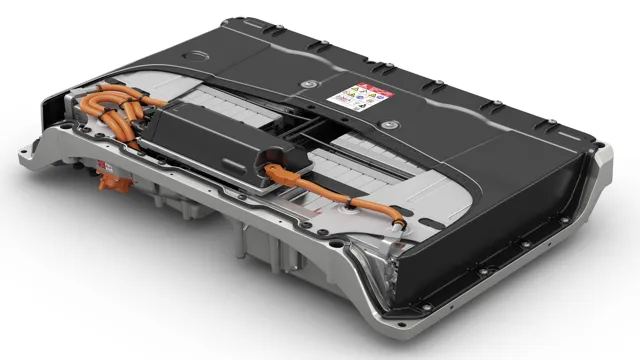
Importance of pack voltage
Battery pack voltage refers to the amount of electrical pressure that a battery pack can produce. It is an important factor to consider when choosing a battery for any application that requires electrical power. The higher the voltage of a battery pack, the more power it is able to deliver.
This means that a higher voltage battery will be able to power larger electrical devices and run them for a longer period of time. In addition, a higher voltage battery pack will be able to deliver power more efficiently, resulting in less energy waste and longer overall battery life. However, it is important to note that a higher voltage battery pack also means that more care and attention needs to be taken when handling and charging it, as the risk of damage and injury increases.
Choosing the right battery pack voltage is essential to ensure that your specific application receives the power it needs in a safe and reliable manner.
Optimal voltage range for electric cars
When it comes to electric car battery pack voltage, there is an optimal range that can affect the performance and longevity of an electric vehicle. Generally, electric cars operate with a voltage range of 200-400 volts, with the majority hovering around 300 volts. This range has been found to provide an ideal balance between power output, battery capacity, and efficiency.
Vehicles with higher voltage ranges tend to be more powerful and can cover greater distances in one charge, but they also require larger and more expensive batteries. On the other hand, cars with lower voltage ranges have smaller batteries and cannot travel as far on a single charge, impacting their range and overall performance. Ultimately, the optimal voltage range for an electric car depends on the specific make and model, as well as the intended use and driving habits of the owner.
Factors affecting voltage range
The voltage range of an electric car can be influenced by various factors, such as the number and type of batteries used, as well as the motor and power electronics. To achieve optimal performance and efficiency, it is important to maintain the voltage within a specific range. Generally, electric cars operate within a range of 300 to 400 volts, with higher-end models reaching up to 800 volts.
However, this range can vary based on several factors, including the size and weight of the car and the intended driving range. Maintaining the right voltage range is crucial to ensure that the car’s battery and components are not damaged, while also maximizing the vehicle’s range and overall performance. In summary, a careful consideration of the factors affecting voltage range in electric cars is necessary to achieve an optimal balance between performance, efficiency, and range.
Impact on vehicle performance
When it comes to electric cars, maintaining an optimal voltage range is key to ensuring top-notch performance. In general, experts recommend keeping the voltage levels between 350 and 450 volts for maximum efficiency. Going below this range can cause issues with power delivery, acceleration, and overall performance.
On the other hand, exceeding this range can lead to overheating and potentially damaging the battery and other components. It’s important to note that different electric car models may have slightly different optimal voltage ranges, and it’s worth consulting with a trusted mechanic or manufacturer to determine the best range for your specific vehicle. By staying within this range, you can experience the full power and efficiency of your electric car without compromising its lifespan or safety.
Range versus voltage trade-off
Finding the optimal voltage range for electric cars is a crucial factor for manufacturers to consider when designing and building these vehicles. The range versus voltage trade-off essentially boils down to balancing the distance a vehicle can travel on a single charge with the voltage or power needed to achieve that range. Higher voltage levels typically result in greater range and faster charging times, but they also come with higher costs, heavier and larger batteries, and more complex charging infrastructure.
On the other hand, lower voltage levels are cheaper and simpler to implement, but they come at the cost of lower range and slower charging times. As technology continues to advance, manufacturers are looking for ways to strike the perfect balance and ensure that electric cars are both efficient and practical for consumers.
Popular electric car models and their battery voltage
When it comes to electric cars, battery pack voltage is an important factor to consider. The most popular models on the market today typically have voltages ranging from 200V to 400V, with some higher-end vehicles boasting voltages of up to 800V. The Nissan Leaf, for example, has a battery voltage of 360V, while the Tesla Model S has a voltage of 400V.
The Chevrolet Bolt EV falls in the middle with a voltage of 350V. A higher voltage generally means more power and range, which is why many new models are opting for higher voltages in order to keep up with the competition. However, it’s important to note that higher voltages can also mean higher costs and potential safety concerns.
Overall, the battery voltage of an electric car is an important factor to consider when making a purchase, but it’s just one of many factors to keep in mind.
Tesla Model S and Model X
When it comes to electric cars, the Tesla Model S and Model X are two of the most popular models on the market. Both vehicles feature high-performance electric motors and come with impressive battery packs that provide excellent range. The Model S has a battery pack with a voltage of 375-450V, while the Model X has a slightly higher voltage at 400-450V.
These batteries allow the Model S to travel up to 373 miles on a single charge, while the Model X can go up to 351 miles. Additionally, Tesla’s vehicles are known for their quick charging time, allowing drivers to recharge their batteries in as little as 15-20 minutes at Tesla’s Supercharger stations. With their advanced technology and impressive performance, it’s no wonder why so many people are choosing Tesla’s electric cars as their primary mode of transportation.
Nissan Leaf
If you’re thinking about purchasing an electric car, the Nissan Leaf is a popular model that you may want to consider. Its battery voltage is 360 volts, which is higher than some other electric cars on the market. The Leaf can travel up to 149 miles on a single charge, making it a great option for those with a daily commute or shorter trips around town.
One of the biggest benefits of electric cars, like the Leaf, is their low maintenance requirements. Since there are fewer moving parts than in a traditional combustion engine, there is less wear and tear on the vehicle, meaning fewer trips to the mechanic and lower costs in the long run. Plus, the environmental benefits of driving an electric car, such as reduced emissions, are also a significant factor to consider.
Overall, the Nissan Leaf is a solid choice for anyone looking to make the switch to an electric vehicle.
Chevrolet Bolt
If you’re in the market for an electric car, you may be wondering about the different models and their battery voltage. One popular option is the Chevrolet Bolt, which uses a 60-kWh battery pack. This provides an estimated range of up to 259 miles on a full charge, making it a great choice for longer trips.
The Bolt also has a maximum charging rate of 55 kW, allowing it to recharge quickly when needed. Other popular electric car models include the Tesla Model S, which offers several battery options ranging from 60 kWh to 100 kWh, and the Nissan Leaf, which uses a 40-kWh battery for a range of up to 150 miles. When choosing an electric car, the battery voltage and range are important factors to consider, as they will impact the car’s performance and usability in real-world settings.
With the Chevrolet Bolt and other popular electric car models available today, there are plenty of options to choose from based on your needs and preferences.
Future of electric car battery pack voltage
The future of electric car battery pack voltage is an exciting topic for industry experts and car enthusiasts alike. Manufacturers are constantly striving to develop batteries with greater capacity, longer life, and faster charging times. One trend that is likely to continue is an increase in battery pack voltage.
As voltage increases, so does the power output of the battery, allowing for faster acceleration and longer range. Currently, most electric cars feature battery packs with a voltage between 300 and 400 volts, but some manufacturers are already pushing the limits with packs reaching up to 800 volts. This trend towards higher voltage batteries will likely continue as electric cars become mainstream and consumers demand faster charging times, longer ranges, and increased performance.
Additionally, higher voltage batteries will allow for faster charging times as more powerful charging stations are developed. In summary, the future of electric car battery pack voltage looks bright, with manufacturers pushing the limits to provide drivers with the best possible performance and range.
Advancements in battery technology
As electric cars become more widely accepted, advancements in battery technology are essential for their continued success. One area of particular interest for electric vehicle batteries is the voltage of the battery pack. Currently, most electric cars use battery packs with voltages in the range of 300-400 volts.
However, as battery technology improves, it is expected that future electric cars will feature packs with voltages upwards of 800 volts or more. This would allow for faster charging times and greater overall range for the vehicles. Additionally, higher voltage battery packs would allow for lighter and more compact battery designs, making electric cars even more desirable for consumers.
While there are still challenges to overcome in achieving these higher voltages, continued research and development in battery technology are paving the way for the future of electric cars.
Impact on voltage range and performance
The future of electric car battery pack voltage is a highly debated topic within the automotive industry. Some experts predict that higher voltage ranges will lead to improved performance, while others are skeptical about the potential risks. One of the main advantages of increasing battery pack voltage is that it allows for faster charging times and longer driving ranges.
However, the downside is that higher voltages can also lead to increased heat generation, which can be dangerous for the vehicle and its occupants. As automakers continue to experiment with different battery pack voltage ranges, it will be important to find the right balance between performance and safety to ensure that electric vehicles remain a viable and sustainable option for the future.
Predictions for the next 5 years
In the next five years, the future of electric car battery pack voltage looks to be headed towards higher voltage levels. With advancements in battery technology, manufacturers are aiming to increase the voltage to improve the efficiency and performance of electric vehicles. While current electric cars typically operate on 400-800 volts, we can expect to see new models with voltage levels exceeding 1000 volts.
This increase in voltage would result in faster charging times and longer range capabilities. However, this change also means that charging stations and electrical infrastructure need to be updated to accommodate these higher voltage levels. Overall, the trend towards higher voltage levels in electric car battery packs is a promising development for the future of sustainable transportation.
Conclusion
In conclusion, the voltage of an electric car battery pack may seem like a mundane and technical aspect of electric vehicles, but it is ultimately what powers these eco-friendly marvels of engineering. Without the right voltage, electric cars wouldn’t be able to function properly, and we would be stuck with gas-guzzling monsters clogging up our roads. So, next time you’re cruising in your electric car, take a moment to appreciate the power of voltage and the amazing technology that makes it all possible.
“
FAQs
What is the typical voltage of an electric car battery pack?
The typical voltage of an electric car battery pack is around 400 volts.
Can the voltage of an electric car battery pack be adjusted?
No, the voltage of an electric car battery pack cannot be adjusted as it is determined by the type and number of cells used in the pack.
How long does it take to fully charge an electric car battery pack with a standard voltage?
It can take anywhere from a few hours to a full day to charge an electric car battery pack to full capacity, depending on the size of the pack and the charging speed.
Why is the voltage of an electric car battery pack important?
The voltage of an electric car battery pack is important as it directly affects the car’s performance, range, and charging speed. Higher voltage means higher performance and faster charging, but it also requires more specialized equipment and safety measures.
